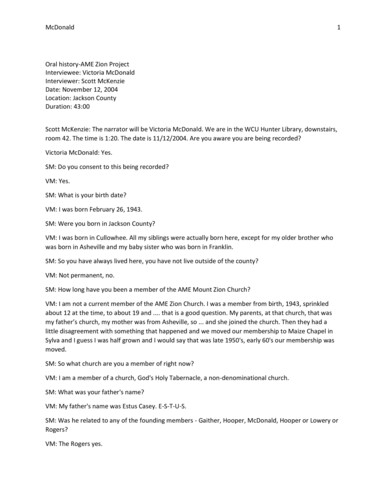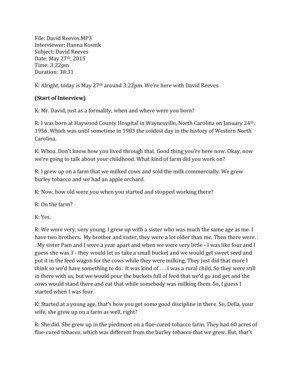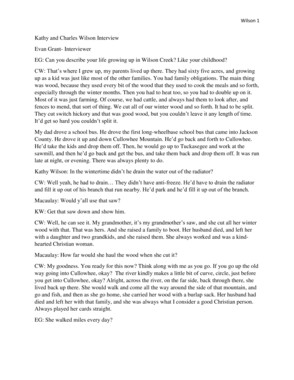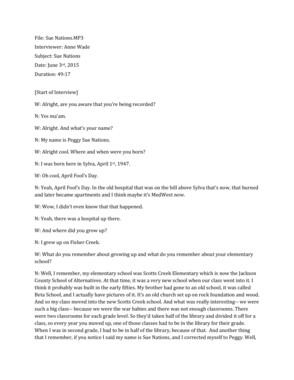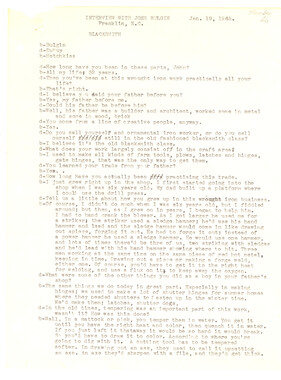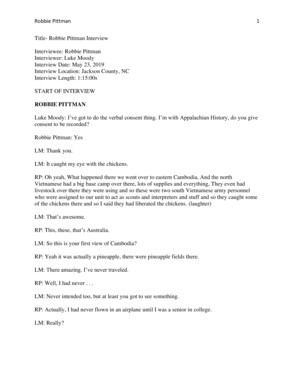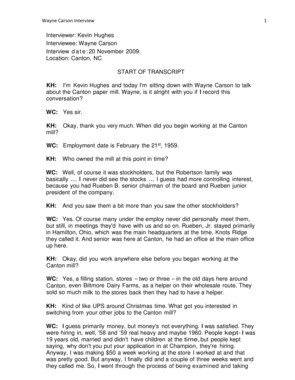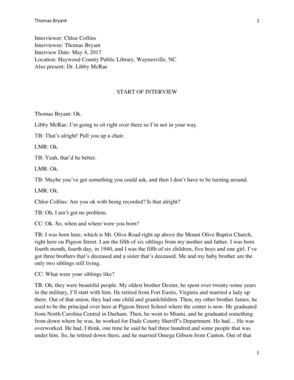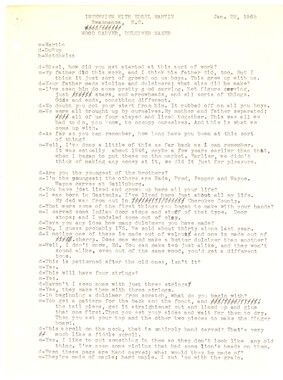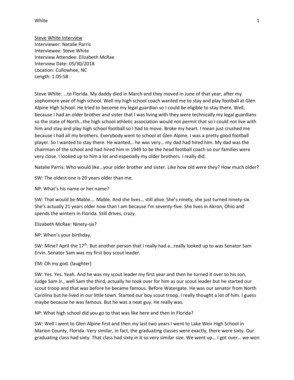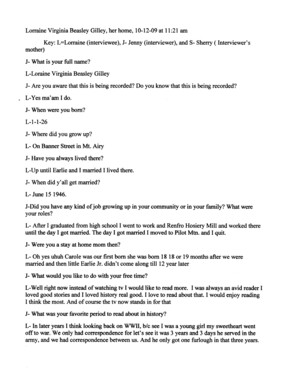Western Carolina University (20)
View all
- Canton Champion Fibre Company (2308)
- Cherokee Traditions (293)
- Civil War in Southern Appalachia (165)
- Craft Revival (1942)
- Great Smoky Mountains - A Park for America (2767)
- Highlights from Western Carolina University (430)
- Horace Kephart (941)
- Journeys Through Jackson (154)
- LGBTQIA+ Archive of Jackson County (19)
- Oral Histories of Western North Carolina (314)
- Picturing Appalachia (6679)
- Stories of Mountain Folk (413)
- Travel Western North Carolina (160)
- Western Carolina University Fine Art Museum Vitreograph Collection (129)
- Western Carolina University Herbarium (92)
- Western Carolina University: Making Memories (708)
- Western Carolina University Publications (2283)
- Western Carolina University Restricted Electronic Theses and Dissertations (146)
- Western North Carolina Regional Maps (71)
- World War II in Southern Appalachia (131)
University of North Carolina Asheville (6)
View all
- 1700s (1)
- 1860s (1)
- 1890s (1)
- 1900s (2)
- 1920s (2)
- 1930s (5)
- 1940s (12)
- 1950s (19)
- 1960s (35)
- 1970s (31)
- 1980s (16)
- 1990s (10)
- 2000s (20)
- 2010s (24)
- 2020s (4)
- 1600s (0)
- 1800s (0)
- 1810s (0)
- 1820s (0)
- 1830s (0)
- 1840s (0)
- 1850s (0)
- 1870s (0)
- 1880s (0)
- 1910s (0)
- Appalachian Region, Southern (15)
- Asheville (N.C.) (11)
- Avery County (N.C.) (1)
- Buncombe County (N.C.) (55)
- Cherokee County (N.C.) (17)
- Clay County (N.C.) (2)
- Graham County (N.C.) (15)
- Great Smoky Mountains National Park (N.C. and Tenn.) (1)
- Haywood County (N.C.) (40)
- Henderson County (N.C.) (5)
- Jackson County (N.C.) (131)
- Knox County (Tenn.) (1)
- Macon County (N.C.) (17)
- Madison County (N.C.) (4)
- McDowell County (N.C.) (1)
- Mitchell County (N.C.) (5)
- Polk County (N.C.) (3)
- Qualla Boundary (6)
- Rutherford County (N.C.) (1)
- Swain County (N.C.) (30)
- Watauga County (N.C.) (2)
- Waynesville (N.C.) (1)
- Yancey County (N.C.) (3)
- Blount County (Tenn.) (0)
- Knoxville (Tenn.) (0)
- Lake Santeetlah (N.C.) (0)
- Transylvania County (N.C.) (0)
- Interviews (314)
- Manuscripts (documents) (3)
- Personal Narratives (7)
- Photographs (4)
- Sound Recordings (308)
- Transcripts (216)
- Aerial Photographs (0)
- Aerial Views (0)
- Albums (books) (0)
- Articles (0)
- Artifacts (object Genre) (0)
- Biography (general Genre) (0)
- Cards (information Artifacts) (0)
- Clippings (information Artifacts) (0)
- Crafts (art Genres) (0)
- Depictions (visual Works) (0)
- Design Drawings (0)
- Drawings (visual Works) (0)
- Envelopes (0)
- Facsimiles (reproductions) (0)
- Fiction (general Genre) (0)
- Financial Records (0)
- Fliers (printed Matter) (0)
- Glass Plate Negatives (0)
- Guidebooks (0)
- Internegatives (0)
- Land Surveys (0)
- Letters (correspondence) (0)
- Maps (documents) (0)
- Memorandums (0)
- Minutes (administrative Records) (0)
- Negatives (photographs) (0)
- Newsletters (0)
- Newspapers (0)
- Occupation Currency (0)
- Paintings (visual Works) (0)
- Pen And Ink Drawings (0)
- Periodicals (0)
- Plans (maps) (0)
- Poetry (0)
- Portraits (0)
- Postcards (0)
- Programs (documents) (0)
- Publications (documents) (0)
- Questionnaires (0)
- Scrapbooks (0)
- Sheet Music (0)
- Slides (photographs) (0)
- Specimens (0)
- Speeches (documents) (0)
- Text Messages (0)
- Tintypes (photographs) (0)
- Video Recordings (physical Artifacts) (0)
- Vitreographs (0)
- WCU Mountain Heritage Center Oral Histories (25)
- WCU Oral History Collection - Mountain People, Mountain Lives (71)
- Western North Carolina Tomorrow Black Oral History Project (69)
- A.L. Ensley Collection (0)
- Appalachian Industrial School Records (0)
- Appalachian National Park Association Records (0)
- Axley-Meroney Collection (0)
- Bayard Wootten Photograph Collection (0)
- Bethel Rural Community Organization Collection (0)
- Blumer Collection (0)
- C.W. Slagle Collection (0)
- Canton Area Historical Museum (0)
- Carlos C. Campbell Collection (0)
- Cataloochee History Project (0)
- Cherokee Studies Collection (0)
- Daisy Dame Photograph Album (0)
- Daniel Boone VI Collection (0)
- Doris Ulmann Photograph Collection (0)
- Elizabeth H. Lasley Collection (0)
- Elizabeth Woolworth Szold Fleharty Collection (0)
- Frank Fry Collection (0)
- George Masa Collection (0)
- Gideon Laney Collection (0)
- Hazel Scarborough Collection (0)
- Hiram C. Wilburn Papers (0)
- Historic Photographs Collection (0)
- Horace Kephart Collection (0)
- Humbard Collection (0)
- Hunter and Weaver Families Collection (0)
- I. D. Blumenthal Collection (0)
- Isadora Williams Collection (0)
- Jesse Bryson Stalcup Collection (0)
- Jim Thompson Collection (0)
- John B. Battle Collection (0)
- John C. Campbell Folk School Records (0)
- John Parris Collection (0)
- Judaculla Rock project (0)
- Kelly Bennett Collection (0)
- Love Family Papers (0)
- Major Wiley Parris Civil War Letters (0)
- Map Collection (0)
- McFee-Misemer Civil War Letters (0)
- Mountain Heritage Center Collection (0)
- Norburn - Robertson - Thomson Families Collection (0)
- Pauline Hood Collection (0)
- Pre-Guild Collection (0)
- Qualla Arts and Crafts Mutual Collection (0)
- R.A. Romanes Collection (0)
- Rosser H. Taylor Collection (0)
- Samuel Robert Owens Collection (0)
- Sara Madison Collection (0)
- Sherrill Studio Photo Collection (0)
- Smoky Mountains Hiking Club Collection (0)
- Stories of Mountain Folk - Radio Programs (0)
- The Reporter, Western Carolina University (0)
- Venoy and Elizabeth Reed Collection (0)
- WCU Gender and Sexuality Oral History Project (0)
- WCU Students Newspapers Collection (0)
- William Williams Stringfield Collection (0)
- Zebulon Weaver Collection (0)
- African Americans (97)
- Artisans (5)
- Cherokee pottery (1)
- Cherokee women (1)
- College student newspapers and periodicals (4)
- Education (3)
- Floods (13)
- Folk music (3)
- Great Smoky Mountains National Park (N.C. and Tenn.) (1)
- Hunting (1)
- Mines and mineral resources (2)
- Rural electrification -- North Carolina, Western (2)
- School integration -- Southern States (2)
- Segregation -- North Carolina, Western (5)
- Slavery (5)
- Sports (2)
- Storytelling (3)
- World War, 1939-1945 (3)
- Appalachian Trail (0)
- Cherokee art (0)
- Cherokee artists -- North Carolina (0)
- Cherokee language (0)
- Church buildings (0)
- Civilian Conservation Corps (U.S.) (0)
- Dams (0)
- Dance (0)
- Forced removal, 1813-1903 (0)
- Forest conservation (0)
- Forests and forestry (0)
- Gender nonconformity (0)
- Landscape photography (0)
- Logging (0)
- Maps (0)
- North Carolina -- Maps (0)
- Paper industry (0)
- Postcards (0)
- Pottery (0)
- Railroad trains (0)
- Waterfalls -- Great Smoky Mountains (N.C. and Tenn.) (0)
- Weaving -- Appalachian Region, Southern (0)
- Wood-carving -- Appalachian Region, Southern (0)
- Sound (308)
- StillImage (4)
- Text (219)
- MovingImage (0)
Interview with Victoria McDonald
Item
Item’s are ‘child’ level descriptions to ‘parent’ objects, (e.g. one page of a whole book).
-
-
McDonald 1 Oral history-AME Zion Project Interviewee: Victoria McDonald Interviewer: Scott McKenzie Date: November 12, 2004 Location: Jackson County Duration: 43:00 Scott McKenzie: The narrator will be Victoria McDonald. We are in the WCU Hunter Library, downstairs, room 42. The time is 1:20. The date is 11/12/2004. Are you aware you are being recorded? Victoria McDonald: Yes. SM: Do you consent to this being recorded? VM: Yes. SM: What is your birth date? VM: I was born February 26, 1943. SM: Were you born in Jackson County? VM: I was born in Cullowhee. All my siblings were actually born here, except for my older brother who was born in Asheville and my baby sister who was born in Franklin. SM: So you have always lived here, you have not live outside of the county? VM: Not permanent, no. SM: How long have you been a member of the AME Mount Zion Church? VM: I am not a current member of the AME Zion Church. I was a member from birth, 1943, sprinkled about 12 at the time, to about 19 and .... that is a good question. My parents, at that church, that was my father’s church, my mother was from Asheville, so ... and she joined the church. Then they had a little disagreement with something that happened and we moved our membership to Maize Chapel in Sylva and I guess I was half grown and I would say that was late 1950's, early 60's our membership was moved. SM: So what church are you a member of right now? VM: I am a member of a church, God's Holy Tabernacle, a non-denominational church. SM: What was your father's name? VM: My father's name was Estus Casey. E-S-T-U-S. SM: Was he related to any of the founding members - Gaither, Hooper, McDonald, Hooper or Lowery or Rogers? VM: The Rogers yes. McDonald 2 SM: So you haven't been a member of the church since the early 1960's, and your relation to the founders was the Rogers. Does anything make the Zion church special to you? VM: Yeah, that's where I started going to church was there, so it's very special because although I don't belong to Mount Zion AME Zion church, I think those churches are special churches because they kept their historical identity and did not go with the United Methodist Church, they were trying to unite all Methodist churches, and they stayed separate. SM: Ok-uh .. VM: Because, historically, you know that church, it became an all black, it was an all black church because in a way, back in New York I guess you should know. Do you know that history? Good, I won't tell you that. SM: Ok - we will leave it at that. Did this church function as gathering place or center for the community? VM: Yeah. I guess it probably it did. That church and all the churches in the county did. They used to have what they call the Feast-in-the-Wilderness and it began about the 1930's and it started in the Webster Baptist Church, and it was where all the black churches came together on a fifth Sunday because no church was having church at that time. Cullowhee AME Zion being a circuit church with Maize Chapel, only had services on first and third Sunday's. Maize Chapel bad it on the second and third Sundays for a long, long time until the end when both churches kind of separated from each other and they were no longer circuit churches, at least they did not have the same ministers. When they had the same ministers, a few would come to Cullowhee first and third, second and fourth in Sylva. The Baptist Church in Sylva, Liberty Baptist, the pastor he was, he had a lot of other churches other than Liberty Baptist and therefore he couldn't be at his church every Sunday either. And then you had these off churches like Webster Baptist, Riverview Baptist. One time there was a church down at Monteith Gap called Mount Carmel Baptist Church and as coincidence would have it, the members who organized this church, organized that church. SM: Sounds like there was a great deal of connection between all of these churches. VM: Yeah. They would come together. SM: The black churches? VM: The black churches would come together every fifth Sunday and have a big meeting, morning until night, morning service, afternoon service and evening service, services all day and then have a big dinner on the ground. SM: That was the feast-in-the-wilderness. VM: Yes. SM: Did you perform any special roles in the AME Zion, or duties? VM: When I was at Mount Zion not really because, I was still… the church had a strong sense that youth would not do anything, it belongs to the older people. Older people always had the positions and the younger people just went. The youth was not involved that much although we did go to Sunday school McDonald 3 conventions, but being an officer of the church I was about close to 18-19 something like that, therefore no, not at Mount Zion. SM: Well, from what you can remember, did women play a greater role in the church as opposed to the males. VM: No. I think the men played a more… yeah men played more roles than the women because they, there was always money to be collected because Mount Zion’s connection, their conferences required money, you know money for this money for that, money for Sunday School, money for missionary, money for that. Although the missionaries did play a role the men played a bigger role because they were out there collecting that money. They made sure money was being collected. My dad and Mr. Will Rogers, Uncle Henry always made sure that our assessments were paid up whether it came from their pockets, they did it. And assessments were outrageous if you ask me. SM: Did the church participate or lead any community programs. Can you remember what those programs might have been? VM: l know that not as much [inaudible] but I know they used to branch out, like I remember one Christmas, the church and the United Methodist, I don't know if it was the United Methodist or the white church, they had a program together and I remember, also because of our little membership, small membership shall I say, some people from, I don't remember where they were from, I can't even remember, would come over and do Vacation Bible School with us. Then after a while we didn't have Vacation Bible School anymore, but because of the small community, black community, we went to Sylva to Liberty Baptist Vacation Bible School and Reverend Smith coming and picking us up in his red truck for Vacation Bible School. My mother who was a pianist, played the piano, organ, for the church. SM: Excellent. I am getting a theme here that this church was connected to all of the other black churches. VM: Yes. All black churches were kind of connected together. SM: Regardless of denomination? VM: Regardless of denomination. My Uncle, who was it, I think it was Uncle [Lewis] said at one time, “You couldn't tell who was a Baptist, you couldn't tell who was a Methodist” because if you didn't have, if the Methodist church wasn't open everybody then usually went to the Baptist church, Mt. Carmel until the pastor died. He died in 1940 something in Asheville, he was from Asheville and they never did get another pastor. And so they had a church there, members of Mount Zion, would go there, would have church at our church and so Mount Carmel would go there untill of course you get, get the the roads and then the Baptists would get their memberships at Liberty Baptist after their pastor didn't come back. SM: That's interesting. Ok we are going to leap into the Civil Rights era. Were there any discussions, and again you left in 60, I am guessing this, any discussions about Civil Rights movement or even political discussions within the church? VM: To my knowledge, no, no. I don't think from the pulpit they preached anything about it, didn't say anything about. My parents, my mom did not want integration at all. Integration, I don't know if you want to print this or not, but, I believe and I firmly believe that integration, what it did to the black community, it separated it, you know. A pocket here, a pocket here a little pocket here and when McDonald 4 integration come you got this pocket of blacks going to school here and another pocket going here, another pocket going there, and they don't associate with each other as much, and they don't get involved in their school as much. You get a split community, that is what I saw integration did to small black communities. Because we all went to one school. SM: Right. VM: Integration split us all over the place. SM: Split the community. VM: Yeah. SM: Ok, I think that answered that. Did the church participate in any public awareness or demonstrations or promote Civil Rights? VM: No. You are living in mountainous community where rednecks are, excuse the expression, where rednecks are and rebel flags fly wherever they want it and you got pockets of KKK around, No. SM: That's a shame. VM: Keep a low profile. SM: I was going to ask does your congregation participate in any events or functions with other churches. We have gone over that. Feast-of-the-Wilderness? VM: Yes SM: Can you think of any other? VM: Well anytime that, anytime that any church would have a program, members of other churches would be on the program. SM: Are you familiar with the female pastor at Mount Zion? VM: Yes. SM: How do you feel about her being a female pastor? VM: Doesn't bother me because I am pastor myself. SM: Are you? VM: Yes I am. SM: I did not know that. How is she received by the rest of the congregation? VM: I think she is received, well… to me she is now being received quite well because I don't think in the beginning she was. I remember first when they had their first female pastor it was… you had the old men still alive, the old saints were still alive and they did not treat her kindly. They did not believe in women pastors and she was not treated too kindly. Question, have you talked to Cyritha Rogers, Cyritha Rogers West? SM: I have not. Who would that be? McDonald 5 VM: She is Ella Mae Rogers' daughter. She is also a reverend. She lives in Franklin. I think that would be a good contact, I don't know what she's going to tell but, she was a member of that church when the first woman came there. She tells me stories about the first women pastor and she tells me stories that was not too nice. I am not sure she would tell you that or not but if she is honest she should. VM: What is your earliest childhood memory you have of the church or your life in Jackson county, specifically the church, or of your life, if you have time? VM: My first memory of the church, that's a good question. I really remember being sprinkled there and I was, and I remember you know, in the Methodist church you have two choices, you can either get submerged or get sprinkled. My mother was deathly afraid of water, deathly afraid of water. She would not allow us to go near water, so she made us afraid of water, therefore, we would not, I was recently baptized about two-three years SM: Were you submerged? VM: I was submerged, yes. SM: And what, you said you were a minister, what is your denomination? VM: Non-denominational. SM: I am not familiar that you could be ordained non-denominational. That's interesting. What is your earliest memory of Jackson, of your childhood? VM: Earliest memory, earliest memory is going down the road to school, to meet the school bus, cold as I could be, watching white kids walk up the road to their school and I have to sit on the side of the road and wait for my bus to come pick me up and take me all the way to Sylva. One time it was so doggone cold, we started back home, my feet were blocks of ice. I could not feel them. As we walked up the road, someone yelled "There's the bus!" Too bad. I walked on home. I think we all walked back home. I know I did walk back home, just kept walking back home. I wasn't going back. That was my earliest memory. Wondering why I couldn't walk up and go to school. But you never ask those questions, not back then. Children ask now. But when I grew up, you don’t ask, just do. SM: I was told your church has tried to record its history, or the history of the AME Zion. What do you know about its history? VM: What do I know about the history of this church? Well, I know the Methodist church was formed in 1892, I think it was. It was a log cabin in East LaPorte, up there, that's where most of the blacks were living at the time. They were not living down in this area, they were living in East LaPorte and oral history says the first pastor was Reverend Hooper, and Hooper would also be one of my kin, because that was my grandmother's maiden name, Hooper. I think his name was Reverend Joseph Hooper. They moved to, up there around, I should have brought my notes. Later on the moved there and stayed there until 1926, or something. Although it was a graveyard, it wasn't a graveyard for Methodist folks only, it was a graveyard for anybody the cemetery was. SM: Oh really. I did not know this. VM: Yes. McDonald 6 SM: Integrated graveyard? VM: For all blacks that lived in Cullowhee, yea, because there was none at Mt. Carmel. SM: You mean integrated for all blacks? VM: Just blacks. So when Western planned to buy them out, they first heard rumors that they were going to take the graves and just plow over them. They went back and talked to them and said "No we aren't going to do that." So they got Mr. Will Rogers and our pastor who was at the time, I was not born yet, was Reverend Longhorn. Reverend Longhorn was a former undertaker, I think it was. So he, those two headed removing the bodies. So they removed every body that was there, 67 graves there. There was one grave with just an arm there and we buried it. Why the arm was buried, there was an old saying that, if your arm was cut off, you need to bury it-because if don't bury it, that place where your arm was, the nub is going to ache all the time. So, you bury it. So we buried his arm. I forget the guys name. SM: Huh. That's interesting. So you think they got all the graves. VM: Yeah. SM: There was a rumor that they had not get all of the graves. VM: Well, they got all they could, in all shapes and forms. My Uncle Henry helped also. Said they found one with just a ribbon in it. They put in a box and took it over. SM: Your father, mother and Uncle Henry were members during the move, am I getting this right? VM: Yeah. Well, Uncle Henry was. My father and mother wasn't married as a matter of fact. It was 19 and 20 something. They got married in 1934, I think it was. SM: How did they feel about this? Did they hold any hard feelings toward the university? This is two separate questions. How did they feel about it at the time and does the community still harbor ... VM: I don't think so. I don't think they harbor anything in the sense ... They have a plaque up there to commemorate that spot, and uh, they left and when they moved over to where they are now, they said they would not move again. That was it, they said they were going to stay right there. They have been there on that side of the road ever since it was established in 1926, I think it was established. SM: We'll move on to something else here. Are you familiar with the Allen School? VM: The school in Asheville, yes. SM: Do you anyone that attended the school? VM: Yeah, most people that were affluent, that had money to send their girls over there, sent them over there, or could scrape enough money to send there kids over there. I think, if I am not mistaken, I think the county helped out with monies, but one of my classmates, Mary Wells, went there. Marjorie Smith went there, Ruby Bryson went there, my Aunt Carolyn, she was a Sheppard at the time, she went there. A lot of girls went there. Education was very important to these people. McDonald 7 SM: Do you think they received a better education as opposed to the school they could have gone to here or were forced to go to. This a complicated question, because we are looking at before and after integration. VM: They probably did get a better education there. But I did alright. SM: You went to school in this county? VM: Yeah. Graduated in what is now the Board of Education building. SM: What was the name of the school? VM: Jackson School. SM: Jackson School and it was integrated at the time? VM: No. SM: No. VM: I went to an all segregated school. I graduated in 1961 and Jackson county had yet to integrate. Jackson County integrated in 1965. SM: Unfortunately, the language in Brown V. Board, they took that to be whatever they wanted ... VM: Yeah, slowly, with all due speed, but the speed was slow. SM: With all deliberate speed, and of course they interpreted that however they wanted to. VM: That school was actually built, because the school, the school wasn't originally supposed to be when they built it. It was supposed to have been the Board of Education building. It was not supposed to be a school. Since, integration was around the corner, they decided to delay integration and finally give us a school. We had been harping on them to give us a school. We need a school. We was in this plank building. It was airy. It did not have any central beating. It did not have any indoor bathrooms. I don't think it had any water fountains. The water fountains were outside. It did not have library, until they put one oft until they took a porch and made a library. As a matter of fact, that new school never had a library, come to think of it. So you know, they decided ok were going delay integration and we’ll build them a school So, they built a school. My Uncle Charlie, Mr. Will Rogers, and Reverend Smith are three of the gentlemen that okayed the building. All three of them had no kids in school, but they were the blacks in the county the whites looked up to, so to speak. SM: Have you ever worked for the university? VM: Not really, I graduated from here. I did work for the university as a student in the print shop. SM: You went to WCU, when did you graduate? VM: In 1973, summer of ’73. SM: What was your degree in? VM: History. Then I came back but didn't, really didn't go to classes, but went out to schools. I came back because when I graduated I went back to working at the telephone office. That was boring as heck. McDonald 8 You went to college you didn't want to sit at the telephone office. [These folks got me going crazy]. So I applied for a teaching job, but I didn't have my degree. Western bad at that time Teacher Corps and this cycle was the eleventh cycle. This Teacher Corps cycle was for people that did not have their teacher's degree but they would give them a teaching degree, a Master’s degree in two years. So that's what I did. SM: So you have a Master’s degree? VM: I have a Masters degree. SM: How does the black community feel about Western Carolina? The whole community within Jackson county feel about this school? VM: I really can't answer that question. Generally, I guess they feel ok about it. I never hear any negative things about it. I know that perhaps it is getting hard for blacks to get jobs up here now. It used to be that's where most the blacks worked. You know you got a good job. SM: You worked here? VM: Yeah, my Uncle Henry worked here. Susie Bryson worked here. A lot of people worked here and retired here. When the blacks retired, instead of hiring blacks they seemed to be hiring whites. SM: Why do you think they changed? VM: I am thinking they changed for two reasons. One reason is a lot of blacks think they are too good to do the work and so they don't apply. That's the way I feel about it. I listen to a lot of black people and they think they need to start up at the top of the ladder first instead of starting at the bottom and coming up. They think some of these jobs are beneath their status. SM: Again this question might not apply to you as well. How do you feel the church has evolved during the 1960's? It’s a tough question since you have not been a member there since the 1960's. VM: I think most churches just sit on their laurels and let things happen. I'm sorry. SM: You don't think it has evolved much. VM: No. I think it has evolved more with Reverend Wilder there. SM: I would like to meet her. So you think highly of her? VM: Yeah I do. I've seen her in action. I've seen her do some things, smooth things out that folks were trying to, you know. We do have a little friction now between the denominations because of the Western population. You get Western students going up there and you get other churches trying to pull those students into their church. I said there is enough blacks on this campus for both churches to have members from Western. SM: So, you have a lot, not a lot, some students go to church? VM: Western has a lot of students that go to church at Mt. Zion. They are members. They contributed and they have a role in the church. I don't know what that role is. If l were you, I would talk to Reverend Wilder and see what are the students’ roll. I know they have to leave after four years. But some of them do become members and they do become active members in the church. McDonald 9 SM: I would assume that most of these students would be from Jackson county? VM: No, no. They are not from Jackson county. They are from wherever. Wherever they come from. Charlotte and about, I don't know. SM: I imagine we have a few from Asheville go here. VM: Yeah, some from South Carolina and all. They go to her church and they are active members. SM: This is a rather broad general question. How has life in Jackson County changed? That's a broad question. How do you think it has changed, since you have lived here all of your life? VM: It has changed a lot. And why I say it has changed a lot is because, when I got out of college I was working as a telephone officer as I have said. I tried to apply for a job teaching and as it was they took an elementary teacher who was a science teacher, who was also a coach, and gave him the job instead of me. I kind of complained and so they offered me the Teacher Corps job. So I took and I got my degree. The Teacher Corps job that I took, there were four of us interns and we were all different. I had a Native American from Cherokee, myself, a black American, Marian [inaudible], who was from up north, and another white kid, Sandy Puckett from Virginia. That was the interns. The leader was Nancy Sherrill she was from here. We spent two days at one school, two days at another school, and on Wednesday we were out in the community. Our community was down at the Whittier area? Do you know this area? SM: Vaguely. SM: Barkers Creek, Long Branch, Nations Creek, Cherokee Reservation. Those were our communities. We went into those and I never had been there before and kind of didn't want to go. But I found that people took people at their face value and not as black or white sometimes. I was really taken aback when I went to Log Cabin School, all Appalachian white. OK, they had two schools, one was Log Cabin school which was all Appalachian white kids and one was Qualla elementary which was a mix of Native American and white. Those two schools would come together and become Smokey Mountain Elementary School. Log Cabin, I was leery, because these were all Appalachian whites, they don't live in towns. They live in Nations Creek, Barkers Creek and whatever creek, Thomas Valley and all that. But, I found that these people came to love me and I became to love them. They were nice. I looked at them as where they came from, and sometimes they would come up with the n-word and it didn't bother me as much. I was really taken back when the one of the lunchroom ladies asked me did I know Nigger Jim? SM: What year was this? VM: This was 1970, dear, because I was Teacher Corps from 1974-1976 two years there. I realized she was talking about Jim Wells. He worked down at the Sylva Supply in the basement. All the white folks called him Nigger Jim and that's how she knew him. I wasn't offended, but I was taken back. That's what she was taught. She was smiling. That's what they called him, that's what she called him. She did it maybe with affection, but not with hate. That was all she knew. I figured out who she was talking about and I said I knew him, Mr. Jim Wells. One of the nicest things I have gotten, since I taught at both of those schools and those two schools combined for 28 years, I know those kids. Those kids love me and I love them. I would take nothing [inaudible]. I think it has changed. People respect people. McDonald 10 SM: It is interesting. I have some population figures for the African-American community here. It never varies much from the high 3's to the low 6's. Why do you think that is-why do you think there has been a relatively small but stable population in this county? VM: That's a good question. My cousin wrote me and wished he and his family had stayed here, said he would have been much better off if he had stayed down in the south where we were, in the rural areas instead of going into the cities. His father had to go to the city and he came back when a grandfather died and realized the two boys had been abused and took them up north. So he wished he was down here. I don't know. I feel secure here. My daughter is in Atlanta at the present time is going to school down there, she was in Atlanta for a cousins funeral. She fell in love with it. She fell in love with Tri-City school and she wanted to go and I said, I couldn't tell her no. This place has a lot of prejudice in it, my daughter played basketball and if you are not the star, you didn't get to play. So she didn't get to play much last year and she was very upset about that and she is a very good player. I said well, tell her they had one black star they didn't need two. SM: What year was this? VM: Last year. SM: As recent as last year? VM: Oh yeah, it doesn't go by race either, it goes by where you live. The kids down my way, which I call my way, the Qualla area, have a hard time, unless they are super sports to get on a sports team. When you come to Smokey Mountain High, if you are not super, they usually take people from Cullowhee and Fairview. You got Cullowhee, you got Fairview, Scotts Creek, and Smokey Mountain to choose from. You have a lot of kids coming in. It usually ends up Cullowhee kids being chosen. Fairview’s kids getting chosen, Smokey Mountain not, unless they have a super star. Scotts Creek not unless they have a super star. SM: This about it we have covered most of the questions. Is there anything you would like to add? VM: I've talked too much already. SM: I don't think so. We have only been going a little over thirty minutes VM: I talked too much already, you're not understanding what I am saying. SM: I don’t know if I’ve had enough caffeine here.
Object
Object’s are ‘parent’ level descriptions to ‘children’ items, (e.g. a book with pages).
-
Scott McKenzie interviews Victoria McDonald (Victoria A. Casey McDonald) on November 12, 2004 for the Western North Carolina Oral History Project. Born February 26, 1943, in Jackson County, McDonald was a member of the AME Mount Zion Church until the late 1950s when her family became members of Maize Chapel in Sylva. She talks about the Feast-in-the-Wilderness when all the Black churches in the area came together on the fifth Sunday. She discusses her thoughts on integration and why the church did not discuss the Civil Rights Movement. She recalls some of the history of the church, including the relocation of the church and the cemetery to make room for the growing Western Carolina Teachers College. She describes Jackson School, a segregated school in Sylva which she attended, and Allen School in Asheville which she did not attend. She shares her experience with Teacher Corps and becoming a teacher at Log Cabin School. She talks about working at Western as a Black person and how AME Mount Zion church has evolved with Damita Wilder as pastor.
-
